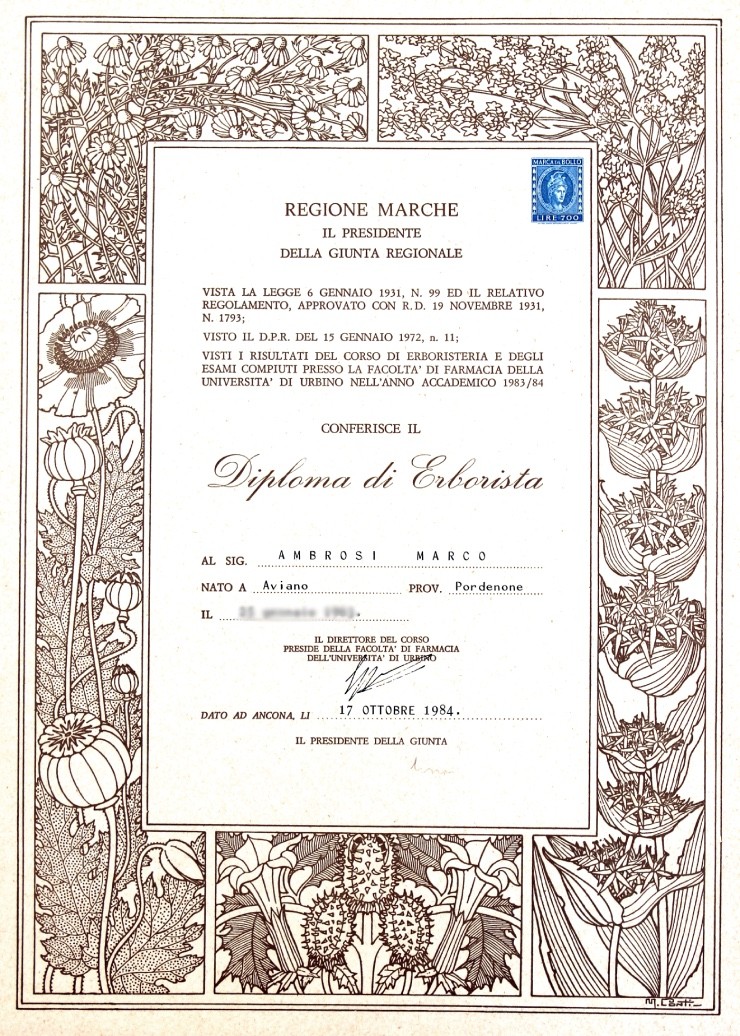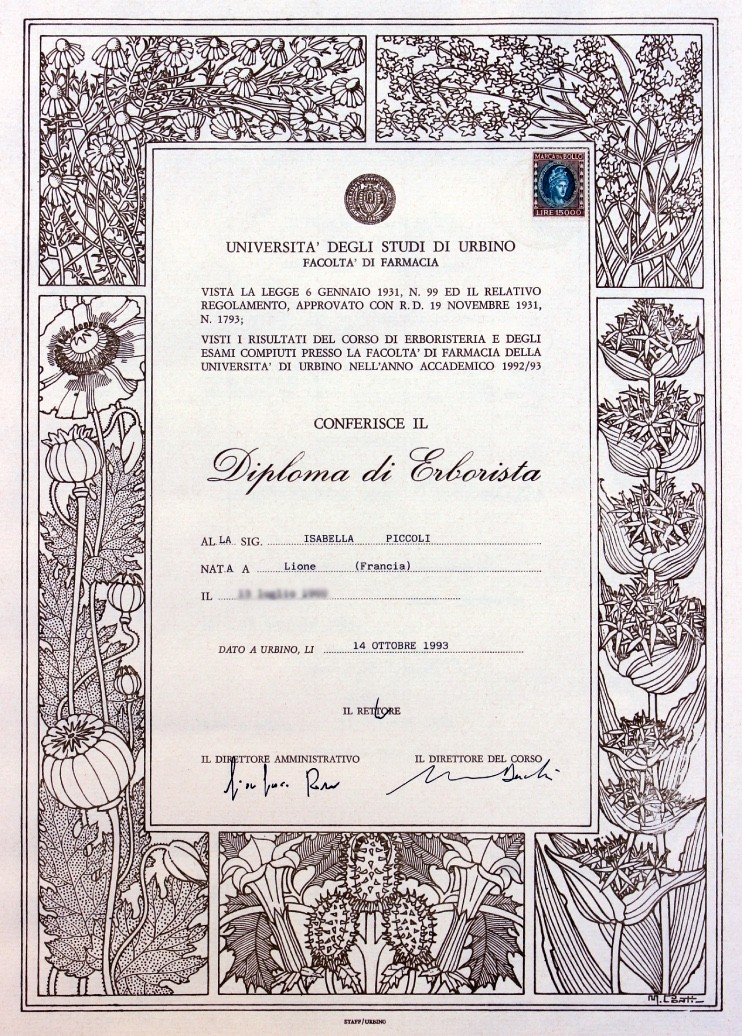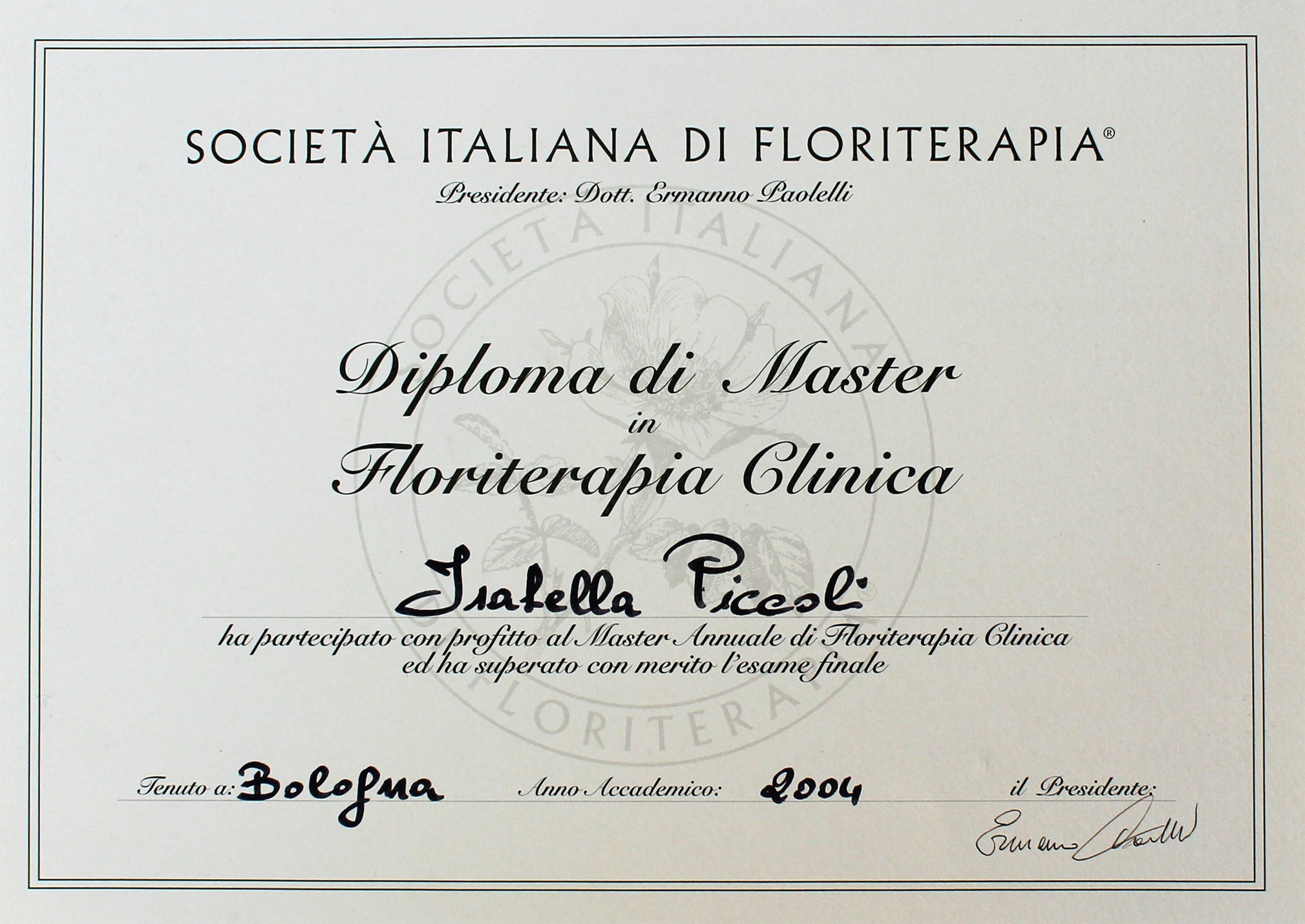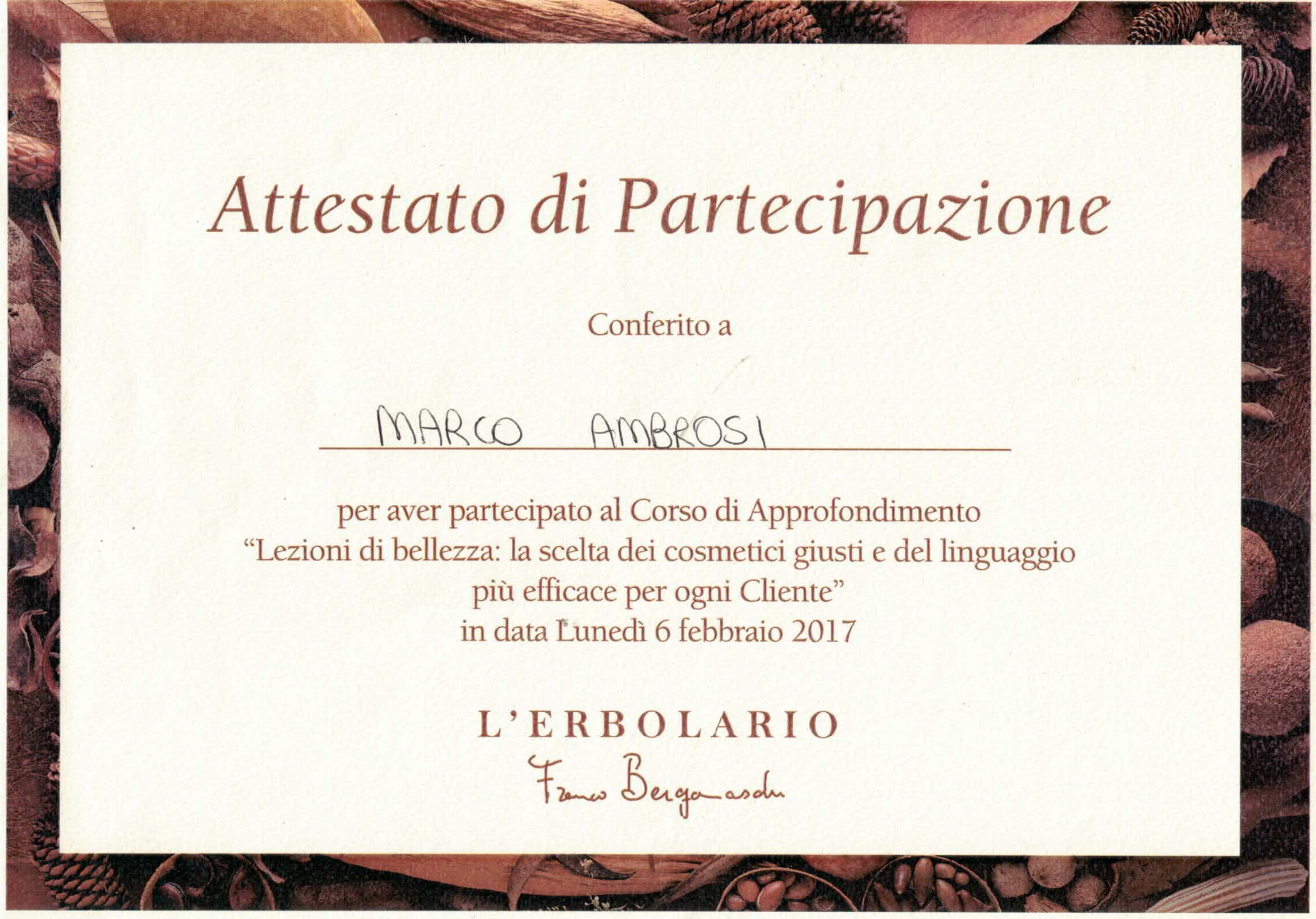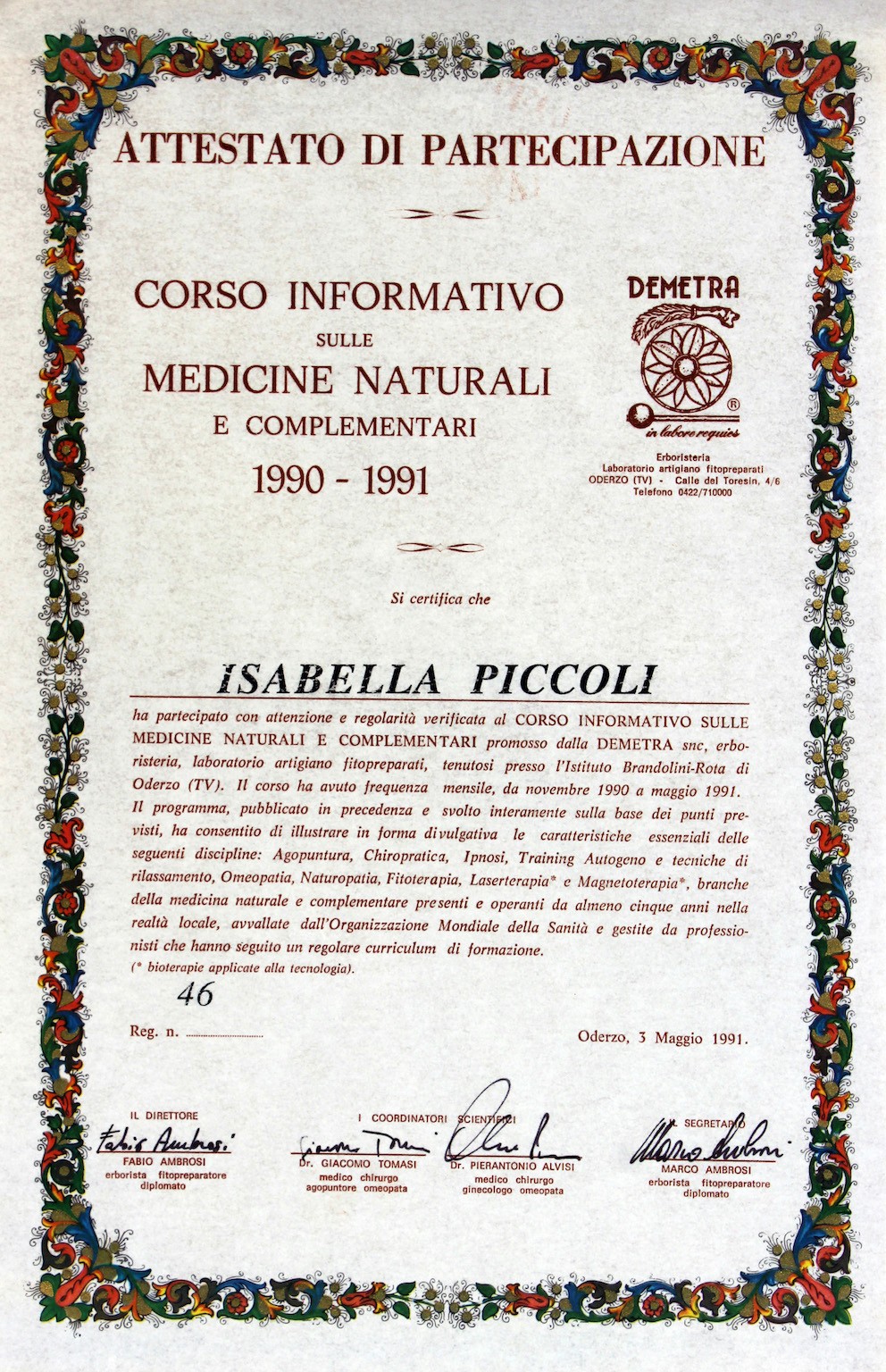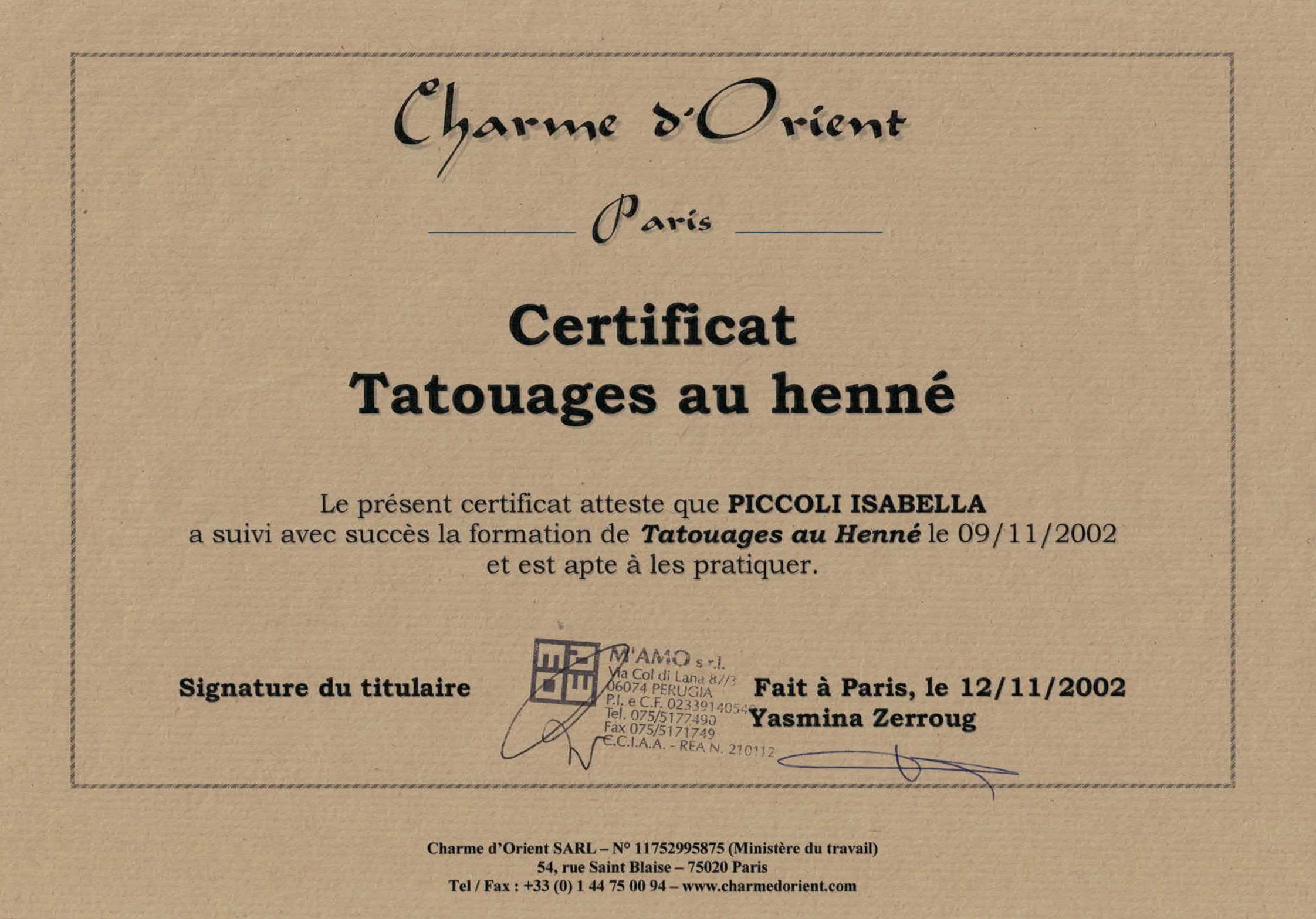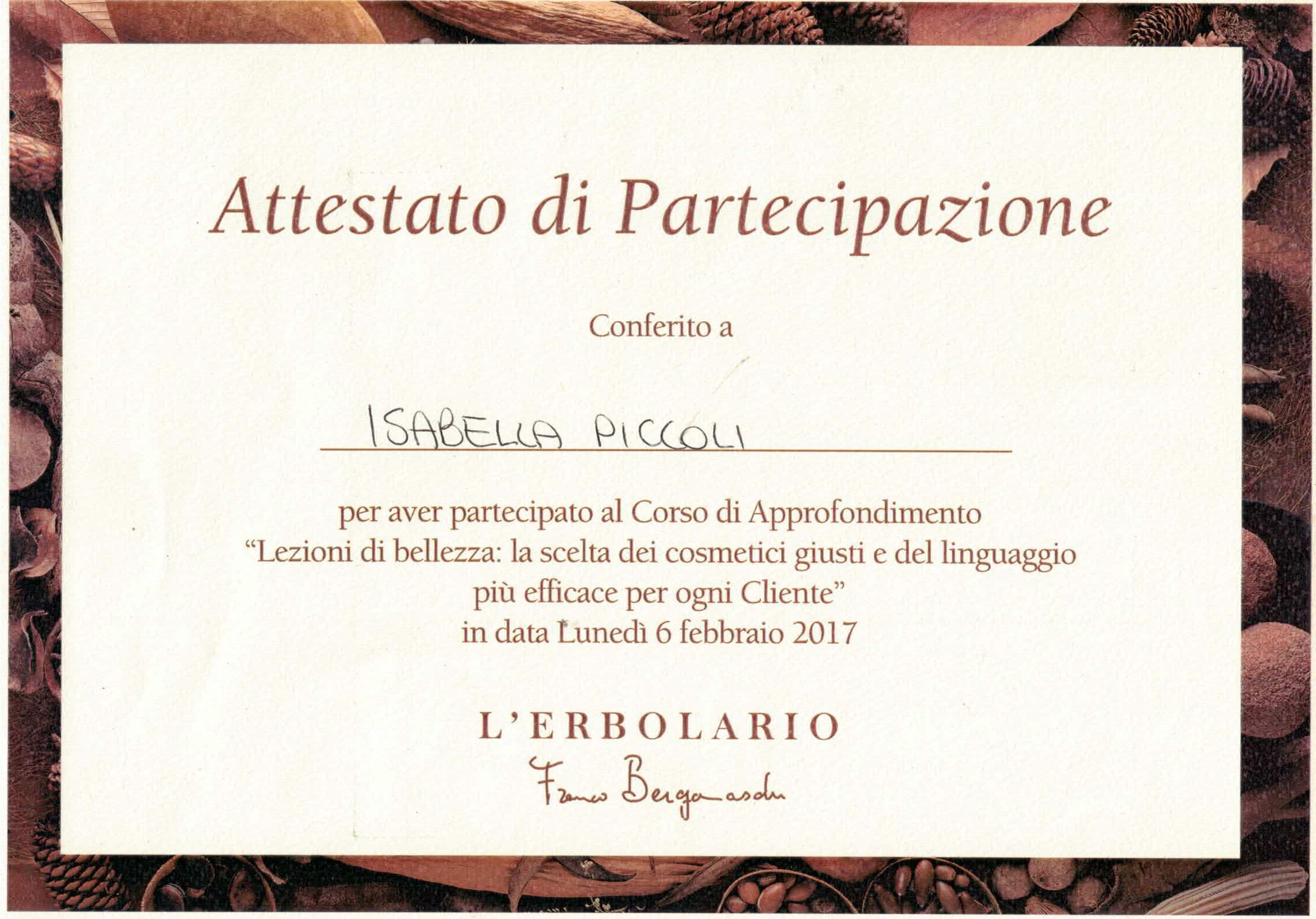
About Us
Demetra was founded on January 1985, by two brothers Marco and Fabio Ambrosi, both herbalists graduated from the Faculty of Pharmacy of the University of Urbino.
Demetra is the Greek goddess of plants, earth and fertility.
Since 1990 a new important figure has joined the management of Demetra. Marco’s wife, Isabella Piccoli, also graduated herbalist, who will later on perform an essential task in consulting and customer management.
The arrival of Isabella Piccoli coincides with Dr. Fabio Ambrosi’s orientation towards a purely naturopathic and medical consultancy and documentation sector which he has been working on for years.
In 2017 Dr. Silvia Battistiol, graduated in Applied Pharmaceutical Sciences at the University of Padua, joined the Demetra team as a collaborator.
In 2018, continuing a family tradition of over thirty years, Dr. Giulio Ambrosi, graduated in Pharmacy at the University of Urbino, joined the Demetra board.
From 2020 Demetra makes use of the skills of Dr. Fabio Ambrosi again as an independent consultant. After leaving Demetra in 1990, he graduated in England first, then specialized in the United States “Medical Naturopathy” and in Physiotherapy at the University of Chieti-Pescara and now runs his own studio in Piavon di Oderzo (TV).
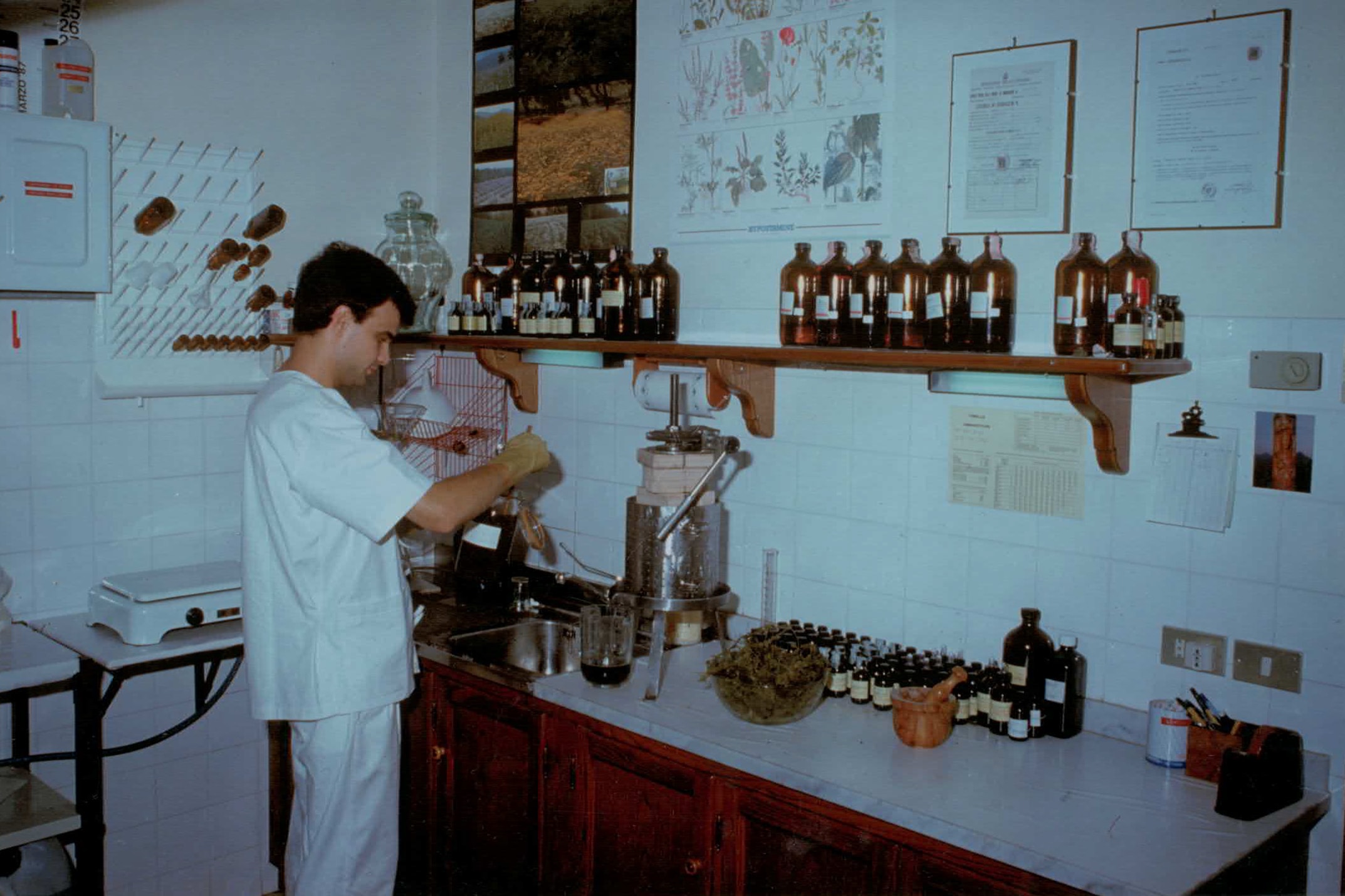
Laboratory; year 1985
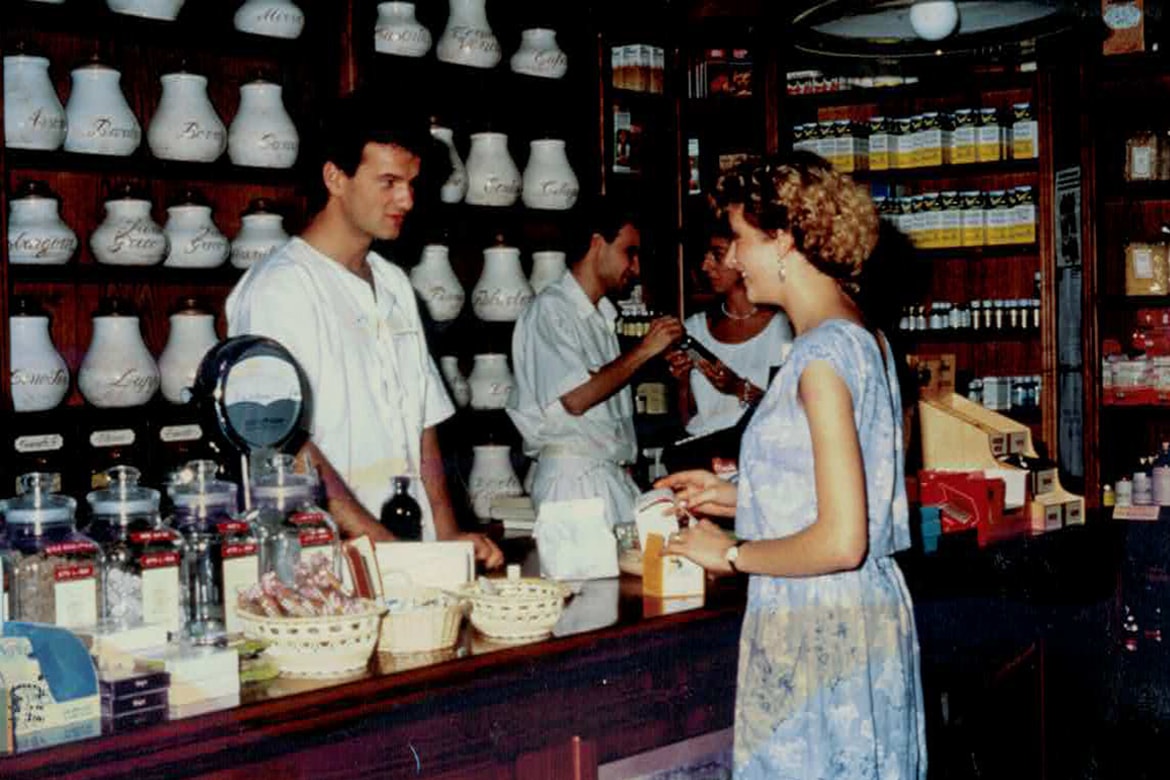
Shop, year 1985
Demeter is the Greek goddess of plants, earth and fertility
The Demeta’s logo is obtained from a high relief of the Opitergino Archaeological Museum (1st century AD) and depicts at the top a frond used for blessing, a plate carved in the shape of a lotus flower in the center and a “simpulum” at the bottom, a kind of spoon used in sacred ceremonies. The two elements in the upper part call upon, according to a symbolic reading, the elements of the plant; stem, branch, flower, while the one below, a tool created by human ingenuity; thus the vegetal elements elaborated by man, become herbal preparation.
The motto “In labore requies” (peace in work) is a reflection of the monastic tradition of the area, closely linked to the study and preparation of medicinal plants.
It comes from the Abbey of Sesto al Reghena (PN) and dates back to the century. XV.


